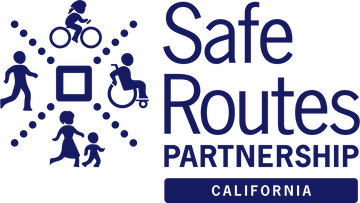Balancing California School Start Times and Walking and Biking Safety
In recent months, the Safe Routes Partnership has solicited input from constituents throughout California about the potential impact of SB 328, which would require middle and high schools to start no earlier than 8:30 a.m. We received input from stakeholders on all sides of the legislation and have done some careful research and consideration of the issues.
Gov. Brown Fails to Add Environmental Justice Expertise to CTC
Last fall, equity and environmental justice advocates were pleased at the passage of AB 179. The legislation mandated reform of the California Transportation Commission (CTC) board and placed requirements to ensure diverse representation, including experience working in disadvantaged communities. Despite the promising requirements written into AB 179, Governor Brown just re-appointed two incumbents who do not meet the criteria of equity or climate justice champions.
Active Transportation Program Applications Nearly Final
The California Transportation Commission (CTC) held the final public workshop for Cycle 4 of the Active Transportation Program on March 1, releasing the latest draft applications the night before. While we had initially pushed to retain standalone questions on public health, we had agreed to a compromise to have public health addressed in the Statement of Need question. We were heartened to see much of our compromise language for those questions adopted, even though our suggestions for questions pertaining to addressing the need were apparently not included this round.
Pushing for Cap and Trade Funding for Active Transportation
In late February, we joined our partners in the Sustainable Communities for All (SC4A) Coalition for a lobby day at the State Capitol, meeting with staff in the Governor’s Office, State Senate and State Assembly to discuss how to spend revenues from California’s Cap and Trade program.
Get Involved in our Active Transportation Networks!
The Safe Routes Partnership facilitates regional active transportation networks (ATNs) in several locations throughout California with quarterly meetings. These ATNs serve as an informational hub for community based organizations and public agencies to share information on best practices and upcoming funding competitions and to engage in increasing active transportation investments and policy.
Governor’s Greenhouse Gas Plans Neglect Active Transportation
Governor Brown released his proposed expenditure plan for Cap and Trade proceeds (the Greenhouse Gas Reduction Fund). We were disappointed to see funds prioritized for Zero Emission Vehicles, which do not reduce Vehicle Miles Traveled or facilitate alternative modes of transportation, while programs such as TCC were sharply reduced.
ATP Cycle 4 Applications Nearing Final Form
The planning for Cycle 4 of the Active Transportation Program continues. In our last E-News, we mentioned concerns we shared with our partners about the move of the ATP Public Health Question to a new section (Statement of Need).


